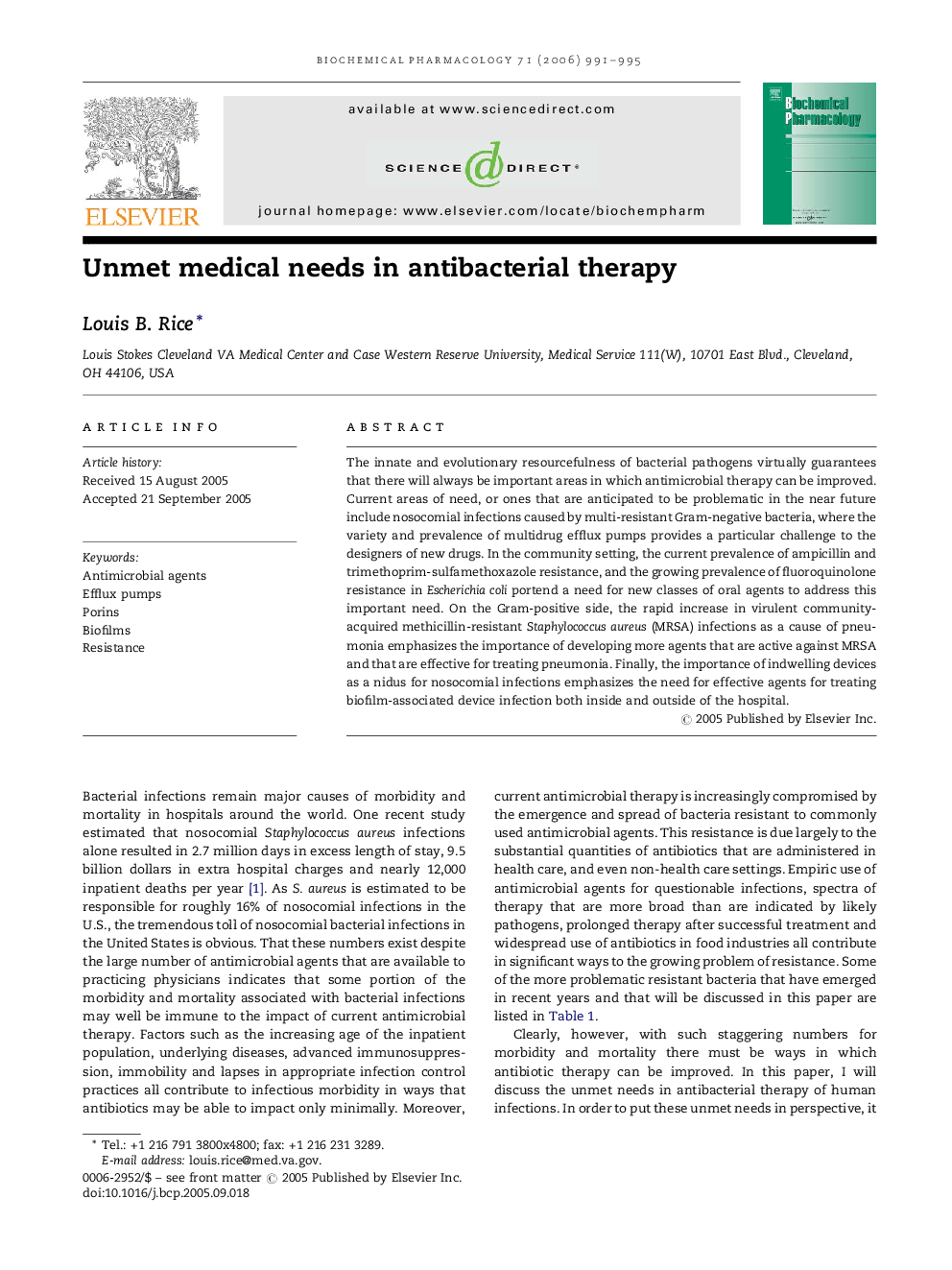| Article ID | Journal | Published Year | Pages | File Type |
|---|---|---|---|---|
| 2515518 | Biochemical Pharmacology | 2006 | 5 Pages |
The innate and evolutionary resourcefulness of bacterial pathogens virtually guarantees that there will always be important areas in which antimicrobial therapy can be improved. Current areas of need, or ones that are anticipated to be problematic in the near future include nosocomial infections caused by multi-resistant Gram-negative bacteria, where the variety and prevalence of multidrug efflux pumps provides a particular challenge to the designers of new drugs. In the community setting, the current prevalence of ampicillin and trimethoprim-sulfamethoxazole resistance, and the growing prevalence of fluoroquinolone resistance in Escherichia coli portend a need for new classes of oral agents to address this important need. On the Gram-positive side, the rapid increase in virulent community-acquired methicillin-resistant Staphylococcus aureus (MRSA) infections as a cause of pneumonia emphasizes the importance of developing more agents that are active against MRSA and that are effective for treating pneumonia. Finally, the importance of indwelling devices as a nidus for nosocomial infections emphasizes the need for effective agents for treating biofilm-associated device infection both inside and outside of the hospital.
